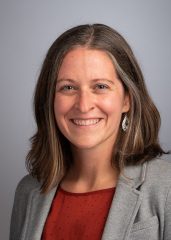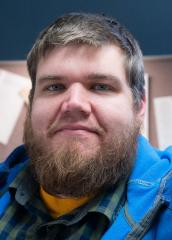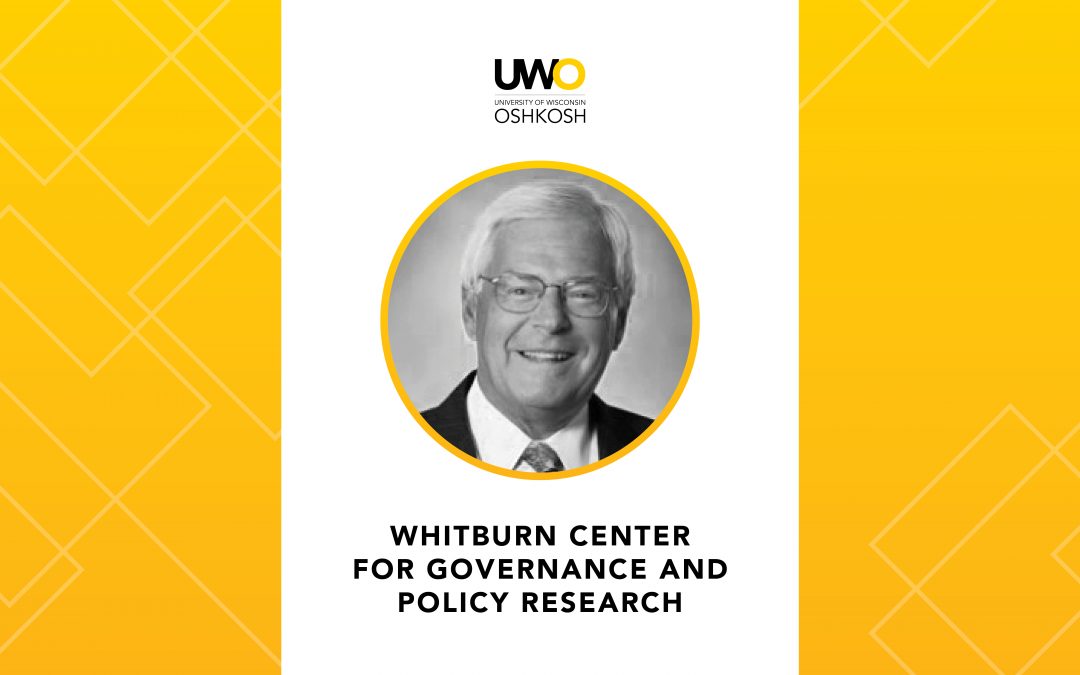When a public health crisis, extreme environmental hazard or other disaster strikes, socially vulnerable groups are the most likely to suffer the consequences. A new report released this week by the University of Wisconsin Oshkosh’s Whitburn Center for Governance and Policy Research calls for increased input from such at-risk groups to better account for their needs in emergency planning.
The new report by the center’s Deputy Director Samantha Larson and Renee Christensen, UWO research assistant and public administration graduate student, assessed the social equity of emergency plans in six Wisconsin counties: Barron, Brown, Columbia, Marathon, Outagamie and Winnebago.

Samantha Larson
“For decades, emergency management scholarship has shown that people from historically underrepresented communities bear the brunt of everything from heat waves to hurricanes,” Larson said. “Lack of resources makes it nearly impossible to take action and stay safe during such events, let alone recover in their aftermath. Think of the record-breaking temperatures this summer. Young children and the elderly, especially those in low-income households and people of color, have been at greatest risk.”
Students in a fall 2021 master’s of public administration course on equitable and resilient communities helped conduct the research for the report titled: An Assessment of Social Vulnerability and Resiliency in Wisconsin Emergency Management Planning.
The report’s findings identified language barriers, location of residence and lack of transportation and financial resources as factors that impact socially vulnerable groups during an emergency.
The study recommends engaging socially vulnerable groups in the emergency planning process in order to identify specific need and barriers to providing a more equitable disaster response.
Larson said the important first step is using data, such as the Center for Disease Control and Prevention’s Social Vulnerability Index in order to “understand who the most vulnerable folks are and where thy live.”
“Designing an outreach strategy that includes those groups is key. And engagement should begin by going to them,” she said.

Matt Richie
Work on this topic is continuing as the center and Matt Richie, an assistant professor of criminal justice, have received a $20,000 grant from UWO’s Sustainable Institute of Regional Transformations (SIRT) to conduct a broader study in collaboration with community organizations.
This second project will map social vulnerability, resilience and adaptive capacity in 14 east central Wisconsin counties with a particular focus on public health and safety risks that are exacerbated by climate change, such as intense heavy rains, storms and extreme heat.
“Our team is thrilled at this opportunity to expand on this preliminary study. We are especially excited to host focus groups with emergency management professionals in four counties. The hope is to gain a better understanding of their strengths, needs and ways the Whitburn Center and SIRT may be able to partner in the future to enhance equity and build resiliency in the Fox Valley region,” Larson said.
Learn more:
- UWO’s Whitburn Center for Governance and Policy Research
- UWO’s Sustainable Institute for Regional Transformations

